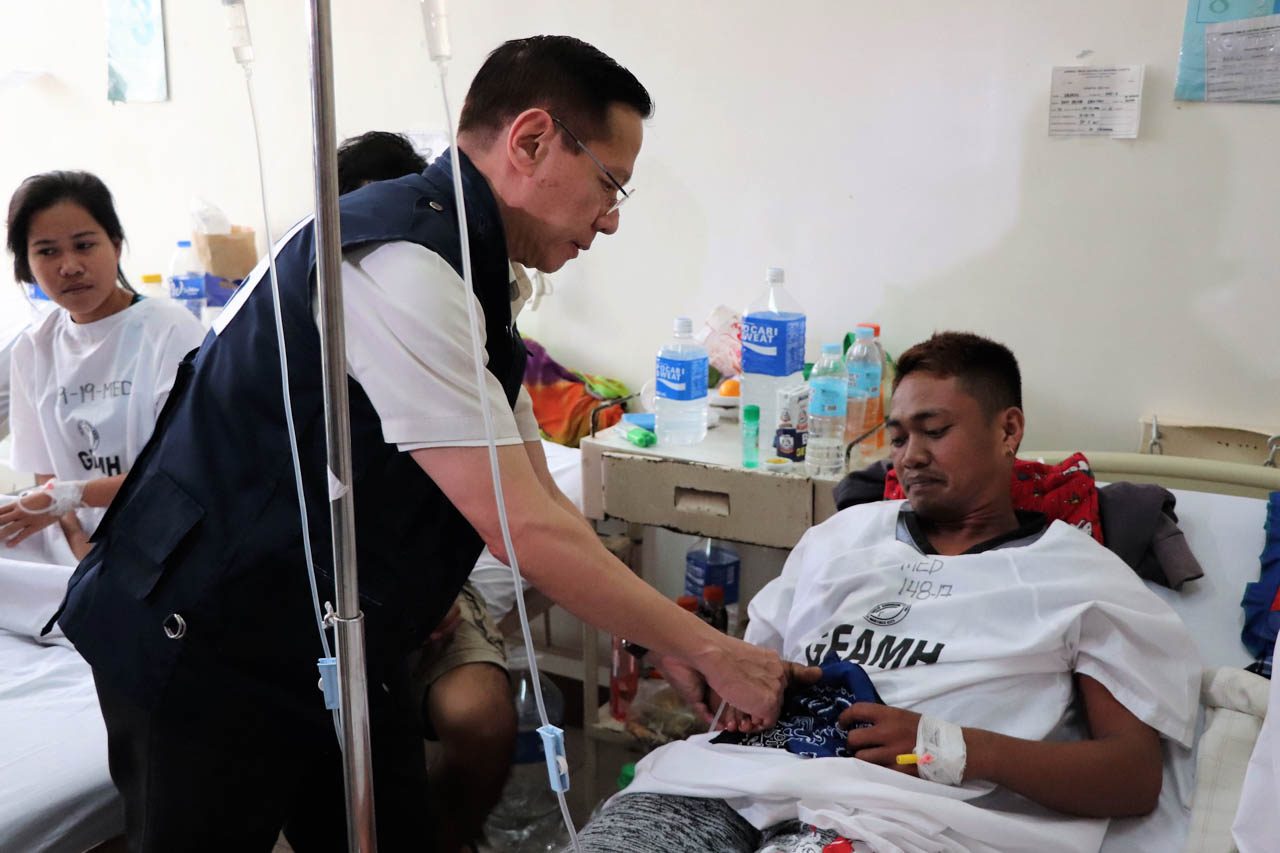SUMMARY
This is AI generated summarization, which may have errors. For context, always refer to the full article.

MANILA, Philippines – Senators on Wednesday, August 7, called on the government to use all available resources to combat the dengue problem, even if that means using funds from “slow-moving projects” of the the Department of Health (DOH).
In a statement, Senate President Pro-Tempore Ralph Recto said the health department should explore this option in order to expand the capacity of DOH-run hospitals, where some patients have to share beds with others due to the lack of space.
“Whenever legally possible, [DOH needs] to transfuse funds from slow-moving programs to the anti-dengue front, including shoring up the capacity of DOH-run hospitals to handle the crush of victims, Recto said.
“It cannot have one program suffering from funding overdose while others are hit by budget anemia,” he added, pointing to the DOH’s low budget disbursment rate in 2018.
On Tuesday, August 6, Health Secretary Francisco Duque III declared a national dengue epidemic as the cases of the mosquito-borne disease continued to rise in the country. From January to July, a total of 622 people have died out of the 146,062 dengue cases.
In a separate statement, Senator Risa Hontiveros called on the government to “mobilize all available resources” to end the epidemic, and the public to do their part in destroying possible breeding sites.
Hontiveros also said that people should only believe health facts coming from experts.
“I call for an end to the scaremongering and promotion of pseudoscience that defy scientific facts and the advice of health experts. Such antics hinder us from protecting the people’s health and containing and ultimately defeating this epidemic,” she said.
Dengavaxia mess to blame?
Detained Senator Leila de Lima, meanwhile, said Public Attorney’s Office (PAO) chief Persida Acosta should be held accountable for “sensationalizing” the Dengvaxia issue. Health officials attributed the decline in the country’s immunization rates to the Dengvaxia controversy. (READ: A year after Dengvaxia: Immunization drops, measles outbreaks soar)
“PAO chief Acosta obliges and causes the worst public health crisis in Philippine history by sensationalizing the issue and single-handedly creating a vaccine-scare. Now hundreds died (622 so far) and hundreds more are hospitalized for dengue,” De Lima said on Wednesday.
“Acosta and cohorts should be held accountable once and for all. This is dirty and mean politics that only Duterte sycophants like Acosta are capable, for the sole purpose of ingratiating themselves to their master,” she added.
According to the DOH, Western Visayas had the highest number of dengue cases with 23,330, followed by Calabarzon with 16,515.
The DOH in July had declared a national dengue alert, but the status was raised to epidemic to “level up the response” against the viral disease. – Rappler.com
Add a comment
How does this make you feel?
There are no comments yet. Add your comment to start the conversation.